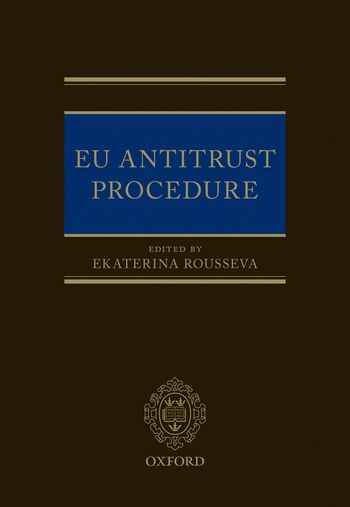
The EU antitrust enforcement system for several decades has been one of the most mature antitrust enforcement systems in the world. The European Commission has been recognised as a leading antitrust agency internationally, and a role model for enforcers. This would not have been possible without effective procedural rules.
This volume provides a comprehensive and practically-oriented account of EU antitrust procedure. After setting out the institutional design and legal framework of the EU antitrust enforcement system, it explores the EU Commission's investigative powers, the possible outcomes of its investigations, the types of decisions it adopts and the remedies and fines it imposes. This volume looks closely at the rights of defences enjoyed by the investigated parties, and how the EU Commission strike a balance between their full observance on the one hand and the effectiveness of its enforcement on the other. Particular attention is given to the judicial review of the EU Commission's acts and the role of the EU Courts in providing judicial protection and ensuring compliance with fundamental rights and principles. Recognising cooperation as a key feature of the EU antitrust enforcement system, the volume explores the mechanisms for cooperation between national antitrust enforcers and the EU Commission, between national courts and the EU Court of Justice as well as the mechanisms for international cooperation. It also provides an in-depth review of the ECN+ Directive and explains how it contributes to making national competition authorities more effective enforcers. Written primarily with enforcers and practitioners in mind, it is essential reading for anyone with an interest in EU antitrust procedure.